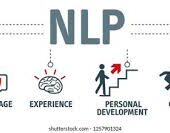Recognizing the demand from both B2B and B2C buyers for seamless, consistent commerce experiences across online and offline channels, Salesforce has introduced an AI-powered, unified commerce version of its Commerce Cloud platform.
Salesforce, a leader in merging ecommerce and CRM software, has taken a significant step toward unified commerce with this next-generation update to Salesforce Commerce Cloud. This move aligns with the expectations of both B2B buyers and consumers, who increasingly seek integrated and personalized interactions.
The company states that Commerce Cloud now “natively connects all aspects of commerce—B2C, direct-to-consumer, and B2B commerce; order management; and payments—with sales, service, and marketing, all on a single platform.” This integration offers businesses a complete view of the customer journey through a shared catalog and user profile. By unifying elements like catalogs, pricing, orders, and marketing segments, companies can deliver personalized interactions, boost customer loyalty, and drive revenue across all touchpoints.
Unified Commerce: A $1.5 Trillion Opportunity
Salesforce cites research from Adyen, which indicates that adopting unified commerce strategies could present a $1.5 trillion opportunity for retailers globally. In North America, 76 of the top 2000 online retailers use Salesforce’s ecommerce platform. In 2023, these retailers generated over 6 billion in web sales. Salesforce’s B2B clients include major companies such as Siemens, Schneider Electric, GE Renewable Energy, and Chambers Gasket.
AI-Powered Commerce Cloud
Salesforce emphasizes that AI powers key aspects of its next-generation Commerce Cloud, enabling the platform to autonomously manage tasks like product recommendations and order lookups by leveraging data from digital and in-store interactions, orders, inventory levels, customer reviews, unified profiles, and CRM information. The AI-backed “Agentforce” agents are designed to assist employees in delivering personalized interactions, strengthening customer relationships, and improving profit margins.
According to Justin Racine, Principal of Unified Commerce at Perficient, Salesforce’s efforts to unify the commerce experience across its broad range of products align with the needs of both B2B buyers and consumers. He notes that modern buyers expect brands to connect and communicate with them based on their previous behaviors, preferences, and purchases.
Unlocking Revenue with Agentforce
Michael Affronti, Senior Vice President and General Manager of Commerce Cloud, highlights that this new version embodies unified commerce by providing businesses with a single, integrated platform. The platform consolidates the entire commerce journey, with AI-powered Agentforce agents unlocking new revenue streams and delivering personalized experiences across every channel.
Furniture designer and manufacturer MillerKnoll has already benefited from the unified platform. Frank DeMaria, Vice President of Digital Engineering & Platforms, mentions that the integration of sales, service, marketing, and other functions has helped the company offer personalized experiences and improve online sales and customer satisfaction across its portfolio of brands, including HermanMiller.
Key Features of the New Commerce Cloud
- Agentforce Buyer: Delivers an autonomous shopping experience for B2B buyers, allowing them to find products and place or reorder purchases with pre-negotiated pricing through chat or messaging channels.
- In-Store Inventory Planning: Provides real-time inventory data, insights, and predictions to help manage stock levels and anticipate demand. Customer service reps can also access product recommendations and add items to carts during support interactions, while customers can view accurate in-stock information by store location on the business’s website.
- Direct-to-Consumer Capabilities: Both B2C and B2B businesses can create user-friendly direct-to-consumer sites. For instance, a medical device company selling knee braces through distributors could now set up a direct-to-patient site with a familiar and efficient digital shopping experience.
- Amazon “Buy with Prime” Integration: Through Salesforce Commerce Cloud’s integration with Amazon’s fulfillment network, businesses can take advantage of Amazon’s fulfillment capabilities.
Racine adds that Salesforce’s new release unifies its product suite under a cohesive platform, providing marketers and business users with a comprehensive 360-degree view of the customer. This enables brands to build experiences and ordering workflows that are predictive rather than reactive. The integration of Agentforce represents a breakthrough, blending AI with brand interactions to unlock potential gains for merchandisers and buyers, and Racine is excited to see how these technologies enhance revenue and customer loyalty.













